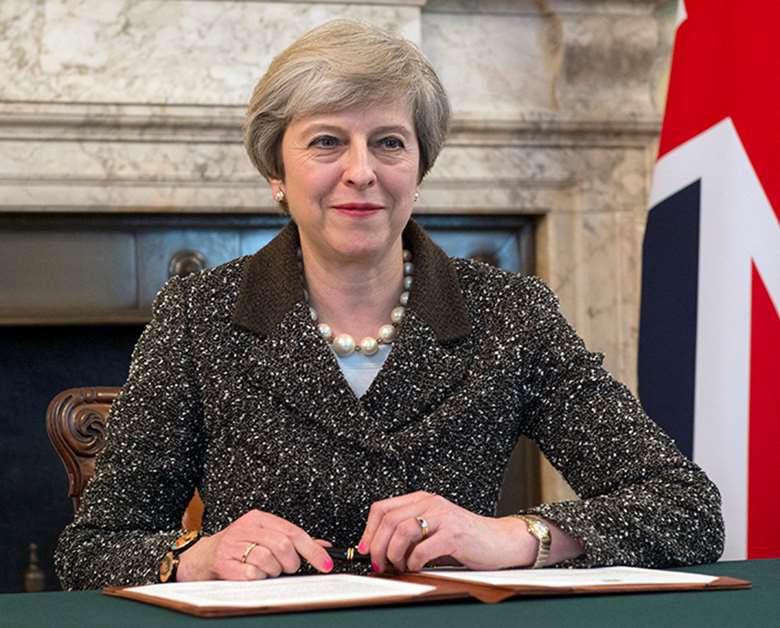PM pledges to end postcode lottery around domestic abuse support
Dan Parton
Monday, May 13, 2019
Councils could be legally required to provide support in secure accommodation for survivors of domestic abuse and their children, under new plans announced by the Prime Minister.

The funding-backed plans would aim to ensure there is consistent support across the country, and will be determined as part of a 12-week consultation launched today.
The government claimed funding would be enough to put services on a sustainable footing.
Prime Minister Theresa May said: "Today we are ending the postcode lottery by placing on local authorities a legal duty to deliver support, including secure housing, to survivors of domestic abuse and their children.
"Whoever you are, wherever you live and whatever the abuse you face, you will have access to the services you need to be safe."
Communities Secretary James Brokenshire said: "For the first time ever, local authorities will have to legally assess level of support needed in their local area and match that need with vital, life-saving services - helping untold numbers of families to safely rebuild their lives, free from the threat of pernicious abuse."
The proposals outline how local authorities would have to develop and publish strategies that set out the support services available for survivors and their children, including refuge accommodation and specialist support.
Local authorities will also be required to work with neighbouring councils to ensure domestic abuse services reflect the needs of local people - including targeted, specialist support for survivors within the BAME, LGBT and Gypsy, Roma and Traveller groups.
The pledge has been welcomed by the local government representatives as well as by domestic abuse charities.
The consultation is part of wider governmental work, including a Domestic Abuse Bill that will introduce the first statutory government definition of domestic abuse to specifically include economic abuse and controlling and manipulative non-physical abuse.
In November 2018, the government awarded £22m for domestic abuse projects across the country to provide more than 2,000 new beds in refuges and other safe accommodation, as well as access to education and employment and life skills guidance.
Rachel Dickinson, president of the Association of Directors of Children's Services, highlighted how more than two million women and men experienced domestic abuse last year, with research putting the annual social and economic costs of domestic abuse at a staggering £66bn.
Dickinson said: "It remains the most common reason why children and families come to the attention of children's social care.
"We welcome proposals to improve vital support for victims and their families, however, any new legal duty must be fully funded if it is to have the desired impact.
"Moreover, today's announcement remains reactive rather than preventative, as do many of the proposals outlined in the government's draft Domestic Abuse Bill.
"If we are to turn the tide of this endemic problem, we must maintain a strong focus on early help and prevention, working with children and families at risk of domestic abuse as well as perpetrators.
"We are committed to working with government and others to this end."
Simon Blackburn, chair of the Local Government Association's safer and stronger communities board, said councils already offer support to protect victims and their families, which the extra measures would assist with.
Blackburn called for the system to allow councils "flexibility to ensure services can be tailored to the needs of different areas"
"However, our ambition must be to reduce the number of victims, with greater investment in early intervention and prevention schemes that helps stop domestic abuse occurring in the first place," he added.
"Therefore, the government's announcement that funding will be provided to place these vital services on a long-term, sustainable footing is a positive step."
Sandra Horley, chief executive of Refuge, said the measures "could put these life-saving services on a secure financial footing for the first time".
Nicki Norman, acting co-chief executive of Women's Aid, said it was "vital" to sustainably fund specialist organisations led by and for black and minority ethnic women.
Suzanne Jacob, chief executive of SafeLives, called for the fullest range of support to be considered, including sanctuary schemes and specialist community support alongside refuges.
"A new duty, properly funded, would be a welcome step and could help make the case for change at local level," she said.
Jacob also called for the adoption of standards devised by the Domestic Abuse Housing Alliance, which she said set out "best practice for public, private and social landlords and for councils to accept the need to house people from outside their own area so survivors can be sure they are far from harm's way".




